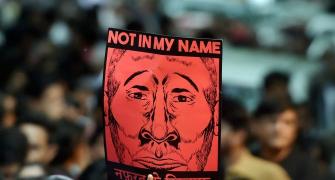The Law Commission has recommended that criminal defamation should be retained within the scheme of criminal laws in India.

In its report on the law on criminal defamation submitted to the government on Thursday, the panel asserted that it is important to keep in mind that the right to reputation flows from Article 21 of the Constitution, and being a facet of right to life and personal liberty, it needs to be "adequately protected" against defamatory speech and imputations.
"Reputation is something which can't be seen and can only be earned. It's an asset which is built in a lifetime and destroyed in seconds. The whole jurisprudence around the law on criminal defamation has the essence of protecting one's reputation and its facets," it said.
The matter was referred to the law panel by the law ministry in August, 2017.
The panel noted that it may be argued that criminal prosecution for defamatory statements is opposed to the right to freedom of speech and expression.
"However, the protection of reputation is not the only impetus behind criminalising defamation as avoiding public disturbances is an equally important motivation," the report underlined.
It said any form of speech should not be illegal in general unless there are very specific and unusual circumstances.
"Indeed, utmost caution needs to be exercised while doing so. Speech ought to be illegal only where it is meant to do substantial harm and when such harm materialises," the panel cautioned.
Referring to the issue of punishment, it said the Bharatiya Nyaya Sanhita, 2023 has added a provision of community service as an additional punishment.
"This law itself gives a balancing approach, wherein it has safeguarded the interest of the victim and has also neutralised the scope of misuse by giving an alternate punishment of community service," the panel headed by Justice (retired) Ritu Raj Awasthi said.
Prior to heading the panel, he was the chief justice of the Karnataka high court.
The panel noted that the law acknowledges that harm to reputation is not only an attack on an individual, rather an imputation on the whole society, for which the perpetrator may be punished to serve the community as an act of remorse.
Through introduction of this punishment, Indian law has shown the most balanced approach in protecting one's reputation and speech too, it underlined.
"Therefore, the Commission recommends that criminal defamation as an offence be retained within the scheme of criminal laws in our country," the report concluded.









